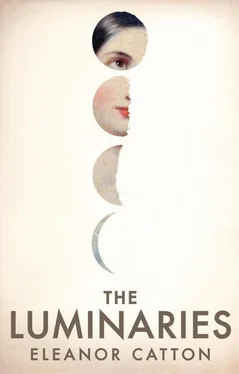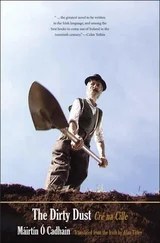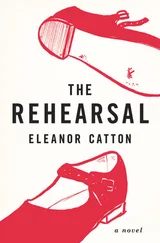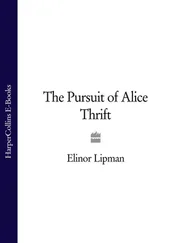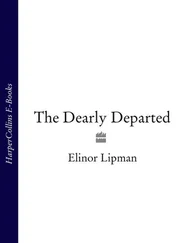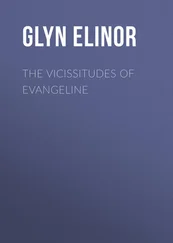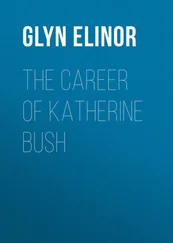‘Waste of a good Manila line,’ said Wells.
Mrs. Wells continued as if he had not spoken. ‘The wreaths look quite arresting, I think; one can never over-decorate at a themed event. If there is any rope left over, we can it pin up behind the bar.’
They were eating breakfast together—an infrequent occasion, for it was rare that Wells rose before noon, and Mrs. Wells had usually quit the place by the time Anna woke. Mrs. Wells seemed nervous; perhaps she was fearful for the success of the party.
‘They will look marvellous,’ Anna said.
‘What’s next?’ said Wells, who was out of humour. ‘A party for diggers—with a riffle-box on each table, and a tailrace from the bar? “In honour of the common man”, you could say. “A party for the unremarkable man. Gentlemen with no connexions whatsoever.” There’s a theme.’
‘Have you had enough toast, Anna?’ said Mrs. Wells.
‘Yes, ma’am,’ said Anna.
‘One of tonight’s guests is a decorated man,’ Mrs. Wells went on, changing the subject. ‘How about that? I think it will be the first time that I have played hostess to a naval hero. We shall have to ask him all about it—shan’t we, Anna?’
‘Yes,’ said Anna.
‘Captain Raxworthy is his name. He has a Victoria Cross; I do hope he wears it. Pass the butter, please.’
Wells passed the butter. After a moment he said, ‘Have you today’s Witness ?’
‘Yes, I read it already; there was nothing of consequence to report,’ said Mrs. Wells. ‘Friday papers are always light on the news.’
‘Where is it?’ said Wells. ‘The paper.’
‘Oh—I burned it,’ said Mrs. Wells.
Wells stared at her. ‘It’s still morning,’ he said.
‘I am quite aware that it is still the morning, Crosbie!’ she said, giving a little laugh. ‘I used it to light the fire in my bedroom, that’s all.’
‘It’s nine o’clock,’ Wells complained. ‘You don’t burn today’s paper at nine o’clock. Not when I haven’t even seen it yet. I’ll have to go out and buy another.’
‘Save your sixpence,’ said Mrs. Wells. ‘It was nothing but gossip. Nothing to report—I’ve told you.’ She glanced at the carriage clock—the second time she had done so in as many minutes, Anna observed.
‘I like a bit of gossip,’ said Wells. ‘Anyway, you know that I’m looking at making an investment. How am I supposed to keep up with the stocks, without the paper?’
‘Yes, well, it’s done now, and it won’t hurt you to wait until tomorrow. Have you had enough toast, Anna?’
Anna frowned slightly: Mrs. Wells had asked her this already. ‘Yes, ma’am.’
‘Good,’ said Mrs. Wells. She was tapping her foot. ‘What fun we shall have, tonight! I love to look forward to a party. And naval men are so high-spirited. And terribly good storytellers. Their stories are never dull.’
Wells was sulking. ‘You know I spend my mornings with the paper. I do it every day.’
‘You can catch up on the Leader ,’ said Mrs. Wells. ‘Or last week’s Lyttelton Times ; it’s on my writing desk.’
‘Why didn’t you burn that, then?’
‘Oh, I don’t know, Crosbie!’ snapped Mrs. Wells. ‘I’m sure it won’t do you any harm to occupy yourself in some other way. Read a settler’s pamphlet. I have a store of them on the bureau downstairs.’
Wells drained his coffee and set his cup down with a clatter. ‘I need the key to the safe,’ he announced.
It seemed to Anna that Mrs. Wells stiffened slightly. She did not look at her husband, but concentrated on buttering her toast; after a moment, she said, ‘Why is that?’
‘What do you mean, why? I want to look at my dust.’
‘We had agreed to wait until a more prudent time to sell,’ said Mrs. Wells.
‘I’m not selling anything. I just want to take stock of my affairs, that’s all. Go through my papers.’
‘I’d hardly call them “papers”,’ said Mrs. Wells, laughing slightly.
‘What else?’
‘Oh—you make it sound so grand, that’s all.’
‘My miner’s right. That’s a paper.’
‘What need could you possibly have for your miner’s right?’
He was scowling. ‘What is this—a royal inquisition?’
‘Of course not.’
‘It’s what they are,’ said Wells. ‘Papers. And there’s a letter in there I’d like to read over.’
‘Oh, come,’ said Mrs. Wells. ‘You must have read that thing a thousand times, Crosbie. Even I know its every phrasing by heart! “ Dear Boy—you do not know me —”’
Wells brought his fist down on the table, causing all of the crockery to jump. ‘Shut your mouth,’ he said.
‘Crosbie!’ said Mrs. Wells, in shock.
‘There’s sport and then there’s sporting,’ said Wells. ‘You just crossed over.’
For a moment, it seemed as though Mrs. Wells were about to make a retort, but she thought better of it. She dabbed her mouth with a napkin, regaining composure. ‘Forgive me,’ she said.
‘Forgiveness doesn’t cut it. I want the key.’
She tried to laugh again. ‘Really, Crosbie; today is not the day. Not with the naval party this evening—and so much to organise. Let us put it off until to-morrow. We can sit down together, you and me—’
‘I’m not putting it off until to-morrow,’ said Wells. ‘Give me the key.’
She rose from the table. ‘I’m afraid you’ve heard my final word on the matter,’ she said. ‘Excuse me.’
‘Excuse me —I’m afraid you haven’t heard mine ,’ said Wells. He pushed his chair back from the table and rose also. ‘Where is it—on your necklace?’
She edged around the table away from him. ‘In actual fact, it is in a safe box at the bank,’ she said. ‘I don’t keep a copy at home. If you wait just a—’
‘Rot,’ said Wells. ‘It’s on your necklace.’
She took another step away from him, seeming, for the first time, alarmed. ‘Please, Crosbie; don’t cause a scene.’
He advanced upon her. ‘Give it.’
She tried to smile, but her mouth trembled. ‘Crosbie,’ she said again, ‘be reasonable. We have—’
‘Give it to me.’
‘You are causing a scene.’
‘I’ll cause a bigger scene than this. Give it up.’
She tried to make for the door, but he was too fast: his hands shot out, and grabbed her. She twisted her body away—and for a moment they struggled—and then Wells, scrabbling with one hand at her bodice, found what he was looking for: a thin silver chain, from which a fat silver key was dangling. He wrenched it out, gathering the key in his fist, and tried to snap the chain. It tore at her neck, and would not break: she cried out. He tried again, more sharply. She was beating his chest with her fists. Grunting, he fought to restrain her, still with the chain wrapped around his fist. He tore at her neck again. ‘Crosbie,’ she gasped, ‘ Crosbie .’ At last it broke, and the key was in his hand; she gave a sob. At once he turned, panting slightly, and went to the safe. He fitted the key into the lock, rattling the handle several times before the mechanism clicked, and then the heavy door swung open.
The safe was empty.
‘Where’s my money?’ said Crosbie Wells.
Mrs. Wells swayed, her hands cupped around her neck. Her eyes were filled with tears. ‘If you calm down just a moment,’ she said, ‘I can explain.’
‘Who needs calming?’ said Wells. ‘I asked a simple question, that’s all. Where’s my bonanza?’
‘Now, Crosbie, listen,’ said Mrs. Wells. ‘I can get it back—the bonanza. I only put it away for a while. Somewhere safe. I can get it back for you, but not until to-morrow. All right? Tonight there are a great many distinguished gentlemen coming to the house, and I haven’t the time to—to go to—to where I’ve hidden it. There’s just too much to do.’
Читать дальше
